Request Information
Ready to find out what MSU Denver can do for you? We’ve got you covered.
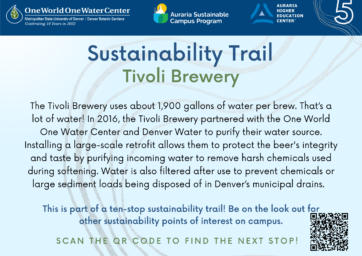
Look for the Campus Sustainability Trail March 27- Earth Day (April 22).
The One World One Water (OWOW) Center and the Auraria Sustainable Campus Program (ASCP) have collaborated to create a Sustainability Trail around the Auraria Campus! The trail highlights 10 sustainable features on campus, marked by yard signs, that look like the one to the right, in the ground. See the map of all the stops and additional information on each feature below!
You can visit the trail throughout the spring from March 27- Earth Day (April 22) and participate in exciting events throughout Earth Week!
Learn more about all of the exciting Earth Week events here!
Learn more about the ASCP here: sustainableauraria.com
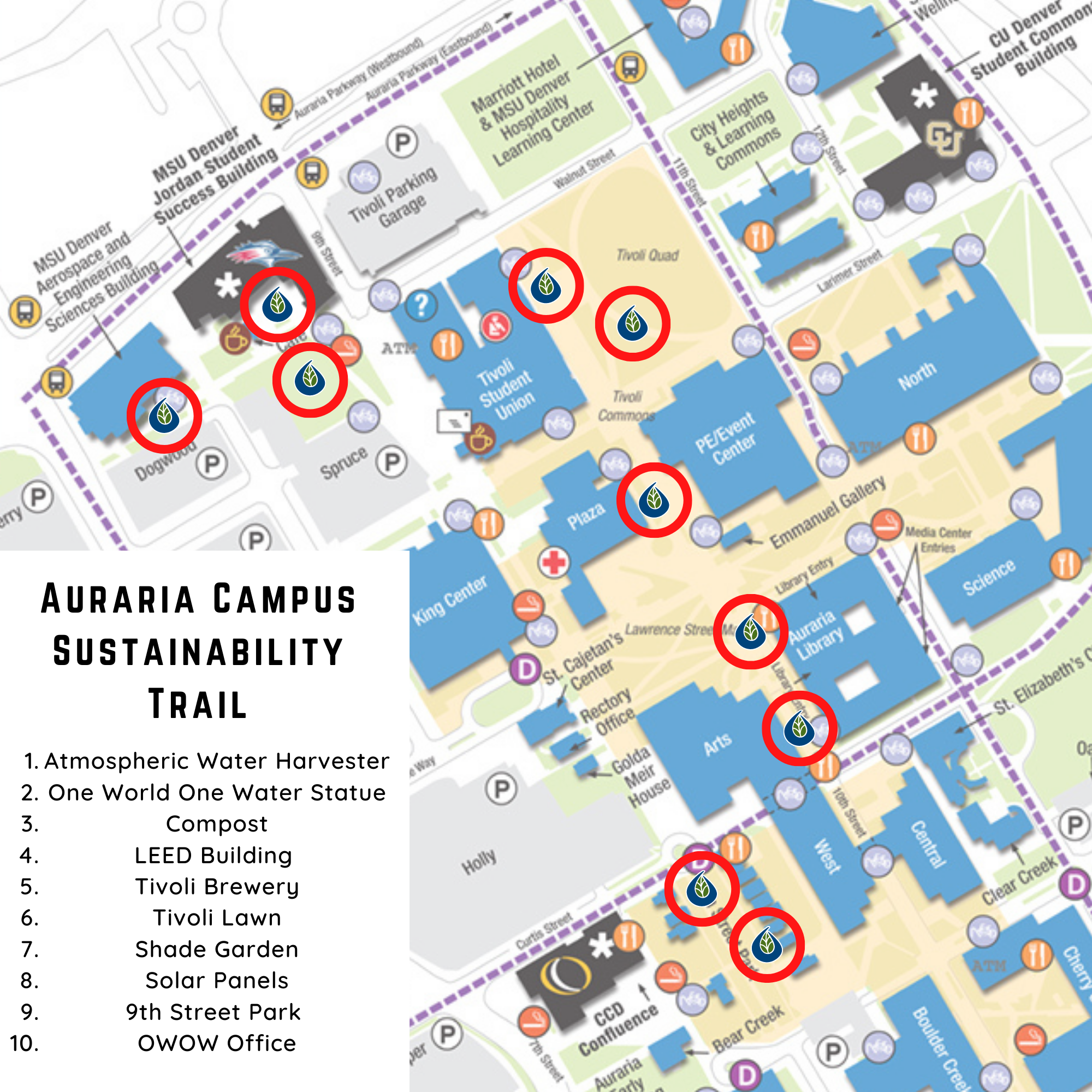

1. Atmospheric Water Harvester, JSSB Lawn
This solar-powered atmospheric water harvester was gifted to MSU Denver by Denver Botanic Gardens. The SOURCE unit uses the sun’s power to accelerate the condensation process to convert water vapors into the water used in irrigation. You can see four other units like this at the York Street and Chatfield Farms locations of DBG. This unit can produce up to 30 gallons of water per day!
Learn more about Atmospheric Water Harvesters here.
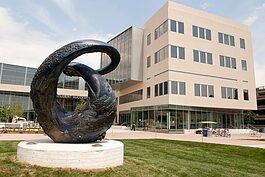
2. One World One Water Statue, JSSB Lawn
On May 2, 2012, a single drop of water bronze sculpture was dedicated to the One World One Water Center. Created by Rik Sargent, the piece underscores the significance of Colorado as a headwaters state for several major Western rivers and the complexity of the state’s water issues. Step closer for a look at all the creative details. Can you find the submarine?
Learn more about Colorado as a Headwaters State here.
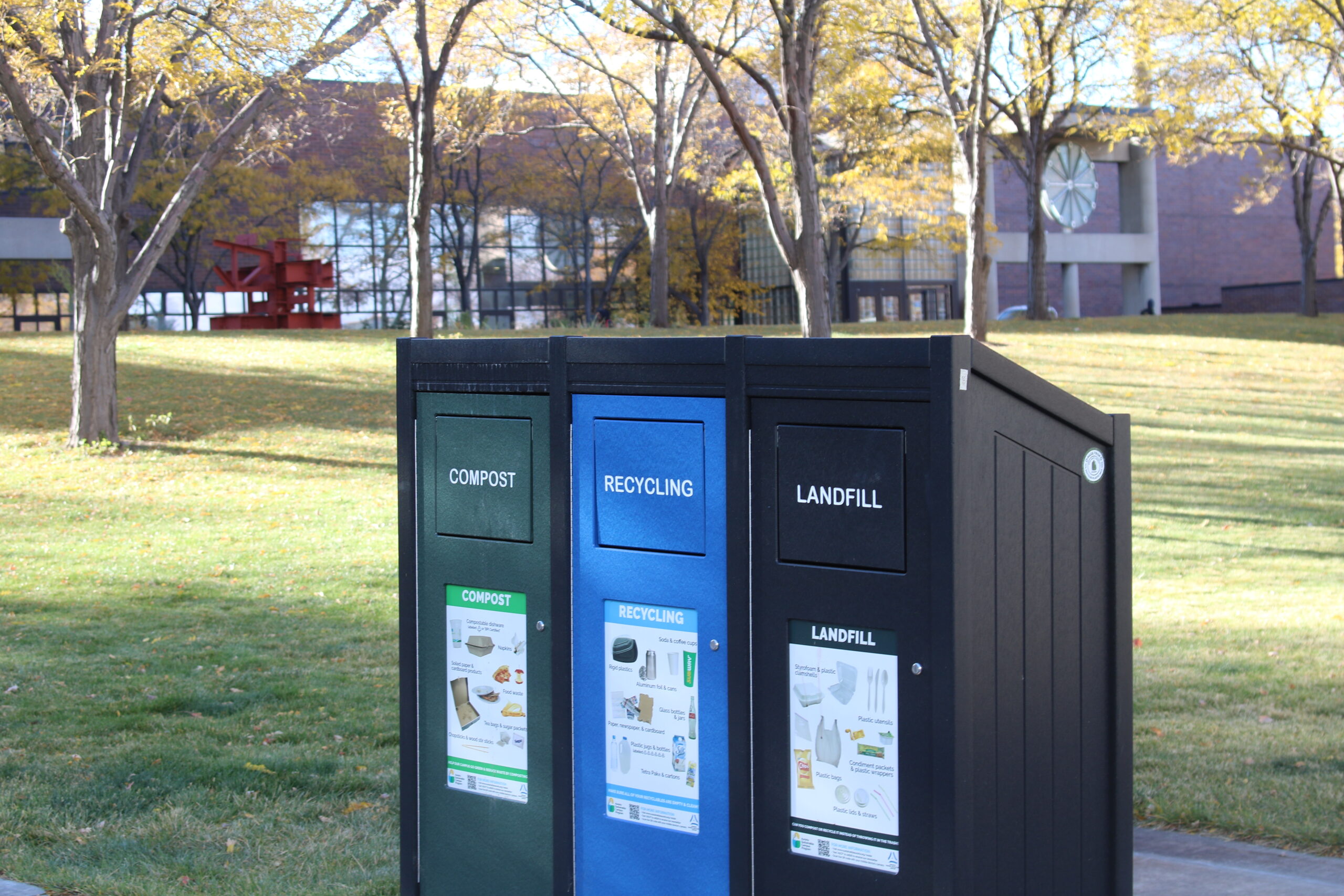
3. Compost, Tivoli
Compost improves downstream water quality by retaining pollutants such as heavy metals, nitrogen, phosphorus, oil and grease, fuels, herbicides, and pesticides. In 2020, Students on the Auraria Campus voted to support the campus-wide Compost Referendum to implement a more robust composting program to enhance waste diversion efforts.
Learn more about the importance of composting here.
Learn about the compost referendum here.
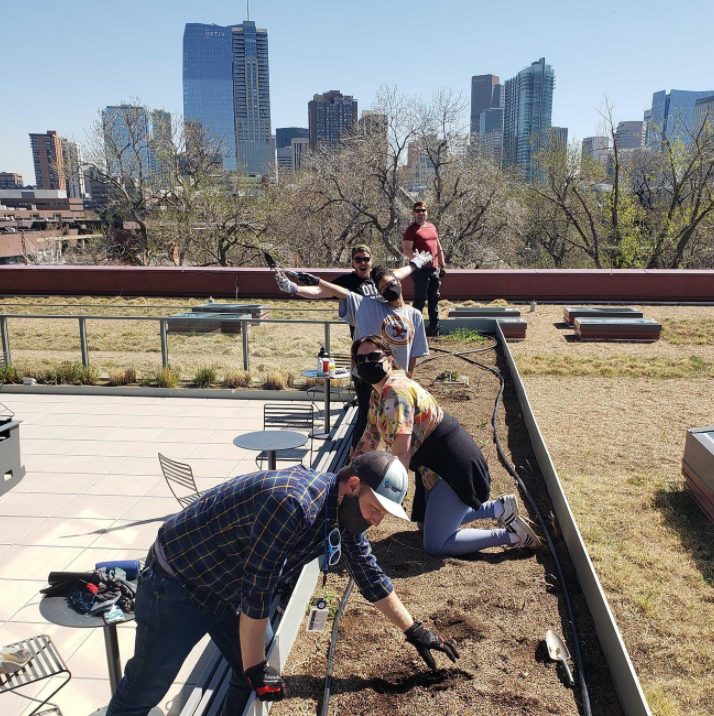
The Auraria Sustainable Campus Program’s Office, Tivoli 346
The ASCP is a campus-wide, student fee funded program with the mission to reduce the Auraria Campus’ ecological impact and dependence on fossil fuels. We work to accomplish this through projects, events, and programs addressing 7 pillars of Sustainability. We serve all four institutions on campus: the Metropolitan State University of Denver, the Community College of Denver, the University of Colorado Denver, and the Auraria Higher Education Center.
Learn more about their 7 pillars of sustainability and how you can get involved on campus here.
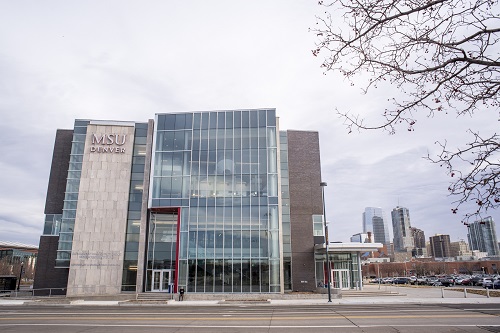
4. LEED Buildings, AES Building
There are eight (8) LEED Gold Certified buildings on the Auraria Campus. The U.S. Green Buildings Council awards leadership in Energy and Environmental Design (LEED) certifications to encourage sustainable construction and building maintenance. Certified LEED Gold buildings must seek standards in water use reduction, efficient landscaping, and innovative wastewater technologies.
Learn more about LEED buildings on the Auraria Campus here.
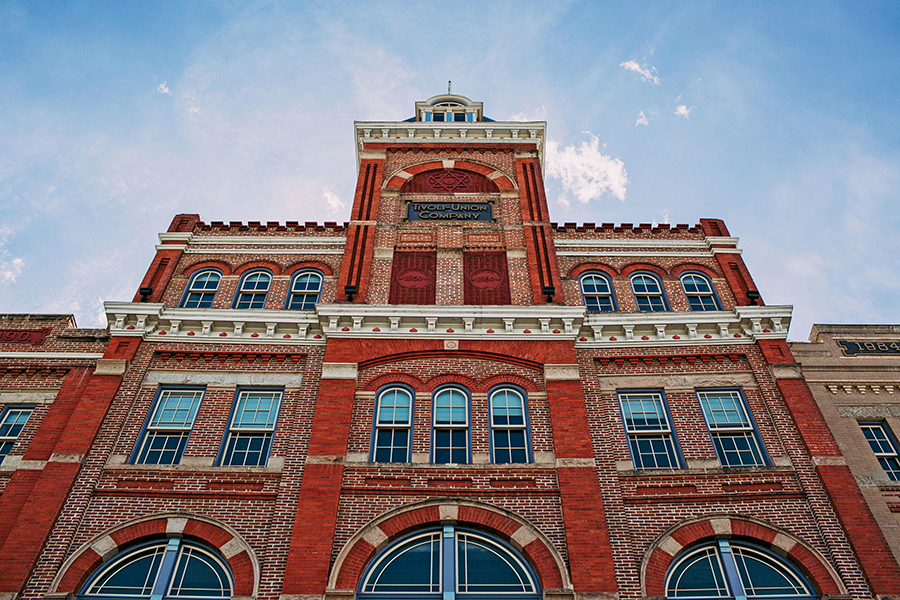
5. Tivoli Brewery
The Tivoli Brewery uses about 1,900 gallons of water per brew. That’s a lot of water! In 2016, the Tivoli Brewery partnered with the One World One Water Center and Denver Water to purify their water source. Installing a large-scale retrofit allows them to protect the beer’s integrity and taste by purifying incoming water to remove harsh chemicals used during softening. Water is also filtered after use to prevent chemicals or large sediment loads from being disposed of in Denver’s municipal drains.
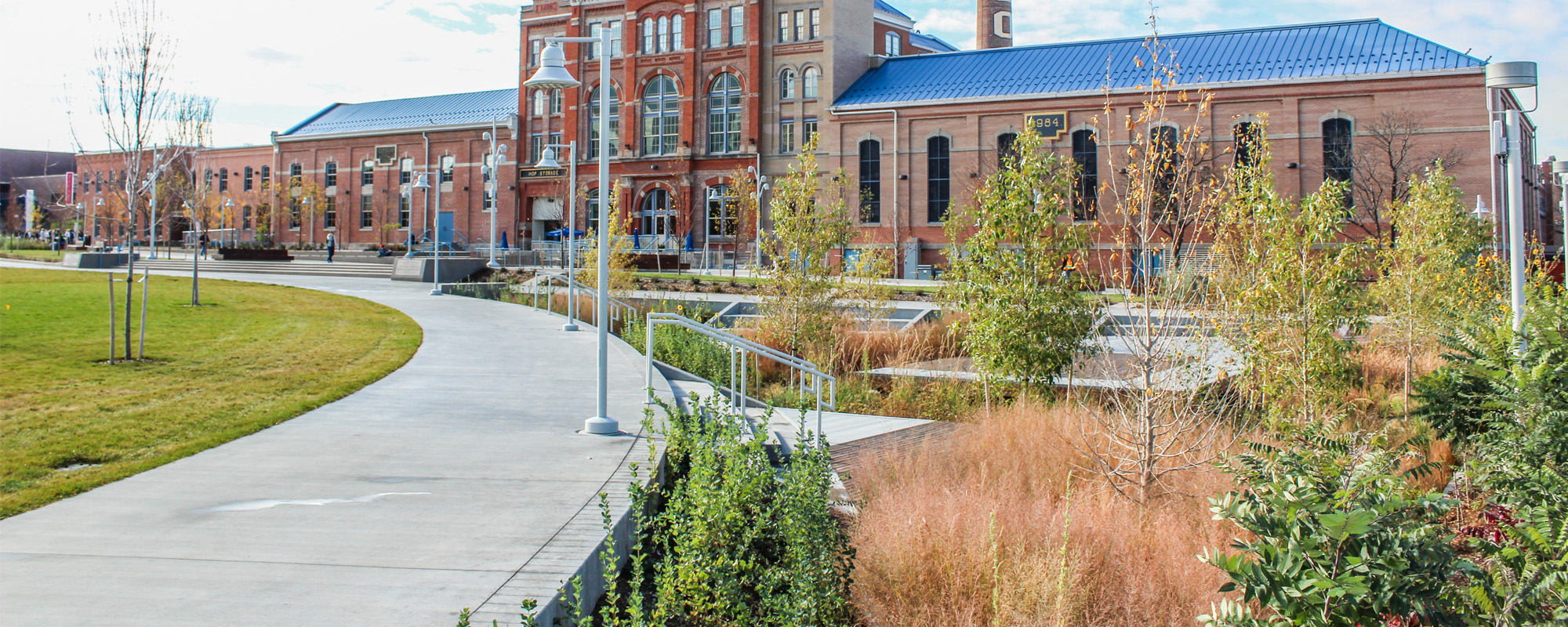
6. Tivoli Lawn
The Auraria Sustainable Campus Program and the One World One Water Center created the Water Action Plan to implement water savings and responsible water use on the Auraria Campus. The goal was to reduce campus water consumption by 10%. In 2019, irrigation upgrades reduced campus water consumption by ~ 8 million gallons, more than 10% of our average annual water consumption (70 million gallons)! Roughly 50% of the campus irrigation system was upgraded with new controllers with predictive analytics and weather sensors that allow the AHEC Grounds team to control irrigation remotely.
Learn more about the Water Action Plan here.
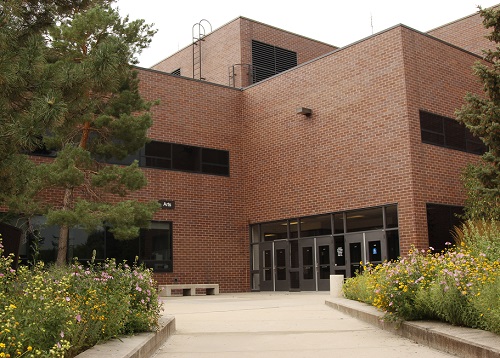
7. Shade Garden, Arts Building
Shade gardens with Colorado native plants help retain soil irrigation, provide critical habitat for wildlife and pollinator species, and provide a place for students and staff to find respite from the heat and learn about native plants. This project showcases the efficacy of native plants for increased soil health, irrigation, and environmental benefits and provides a natural, tangible experience for students, staff, faculty, and guests of the Auraria Campus.
Learn more about the benefits of shade gardens here.
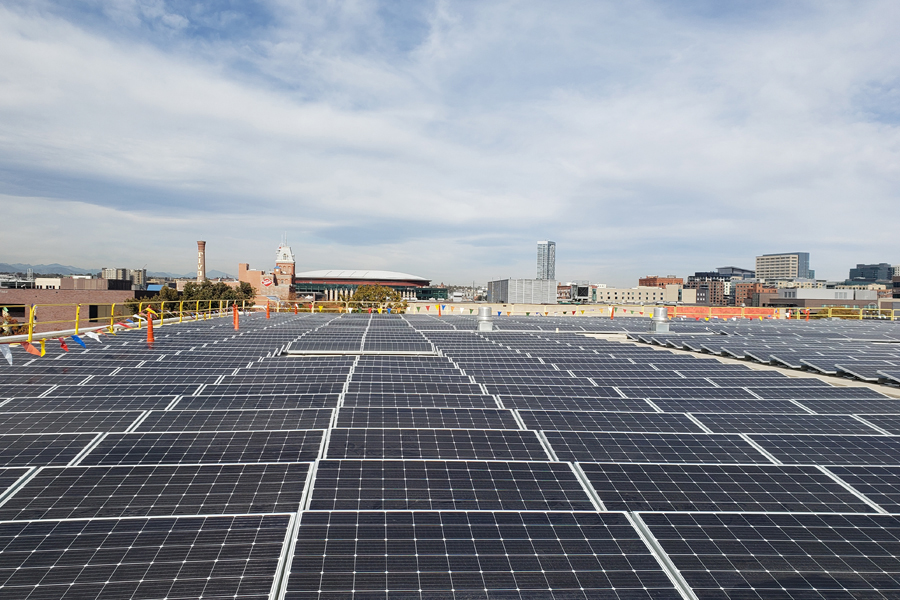
8. Solar Panels, Library
Energy and water are intricately connected. All energy sources require water in their production processes, and energy is needed to make water resources available for human use and consumption. In 2019, in partnership with Namasté Solar, the Auraria Sustainable Campus Program installed the largest single rooftop array in Denver! This 779kW array decreases the reliance on fossil fuels, increases water conservation efforts, and offsets over 2/3 of library electricity usage.
Learn more about the Library Solar Array here.
Learn more about the Water, Food, and Energy Nexus here.
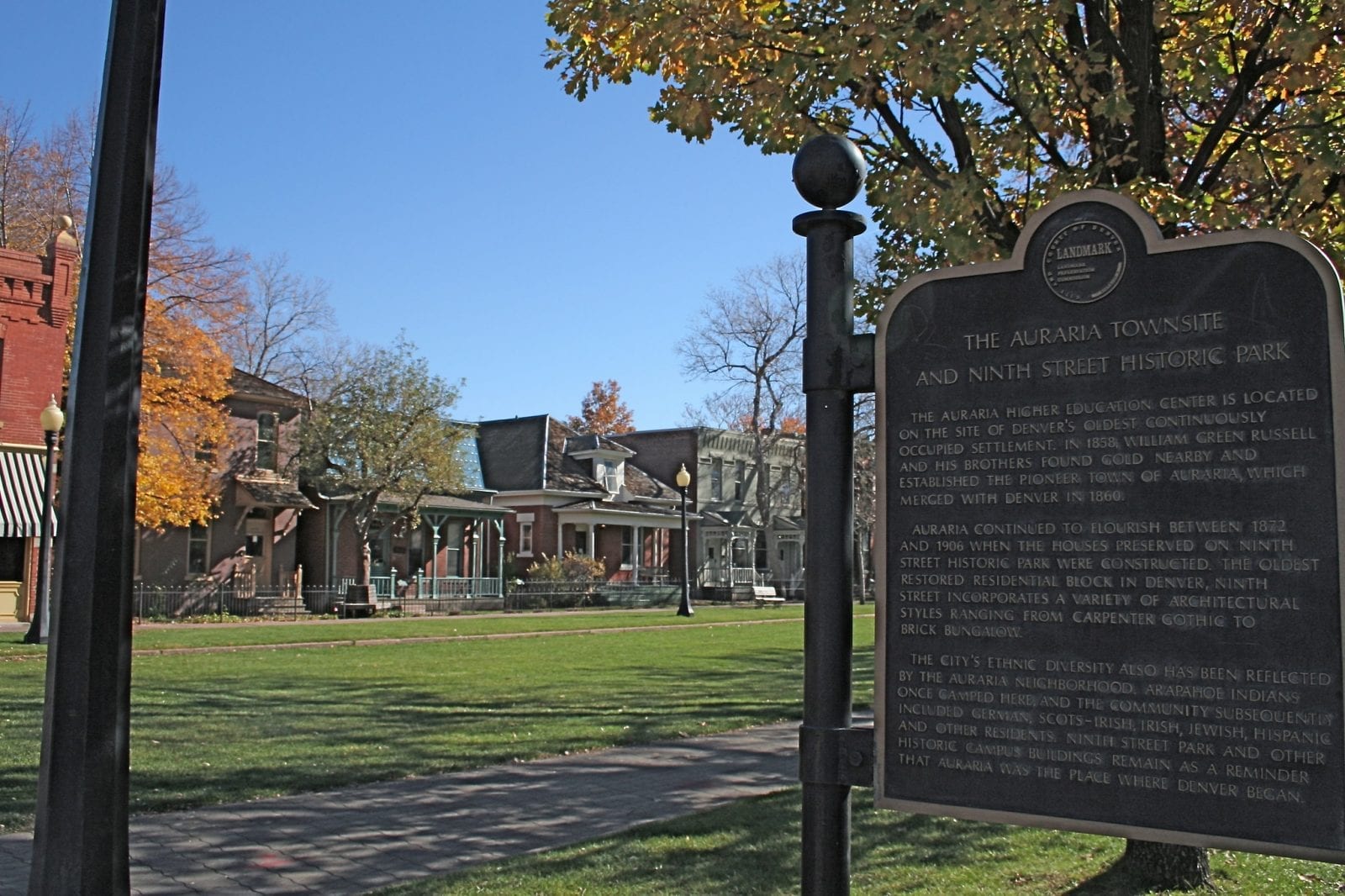
9. 9th Street Park
Auraria is Denver’s oldest neighborhood- it even predates the city’s establishment! Water is intricately woven into the history of Auraria. Auraria was established in 1858 by a small group of miners who emigrated when gold was found near the junction of the South Platte River and Cherry Creek. In June 1965, a devastating flood put much of Auraria underwater when the South Platte River spilled its banks after more than a foot of rain. What followed was a plan to clear Denver’s oldest neighborhood, and remake it as a modern urban campus that now hosts Metropolitan State University of Denver, University of Colorado, Denver and Community College of Denver.
Learn more about Auraria’s history here.
And hear from Displaced Aurarians and Community Activists here.
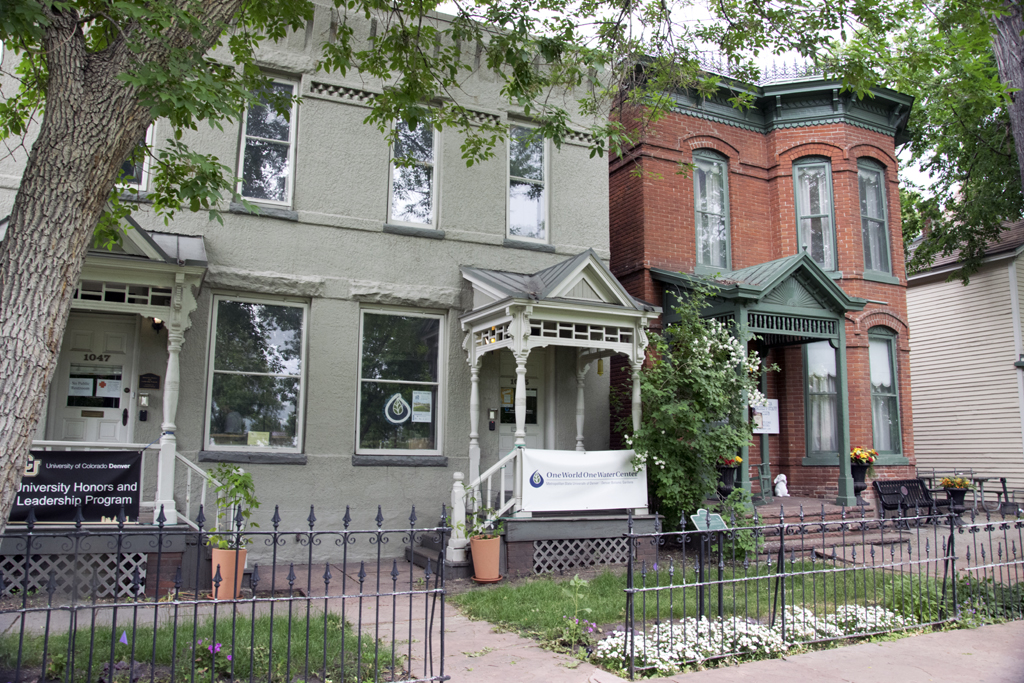
10. The One World One Water Center Office
The One World One Water Center is a collaboration between Metropolitan State University of Denver and Denver Botanic Gardens. The partnership presents an opportunity to build on and expand joint initiatives on water issues, leveraging the strength of each institution to impact water issues more broadly in communities near and far. The One World One Water Center strives to prepare an educated, empowered, solution-oriented Colorado citizenry to protect and preserve our precious water resources. We do this by offering water studies programs for MSU Denver students and community members.
Learn more about the OWOW Center and our Water Studies Programs here.
Your input is needed. This survey is to gain information on how students at the Auraria Campus understand sustainability and what sustainability-related initiatives are most important to you.
Auraria Sustainable Campus Survey 2023